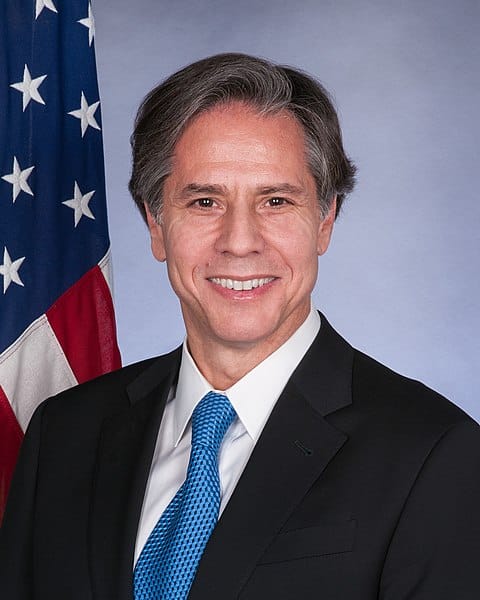U.S. officials stepped up their rhetoric against Iran Wednesday, warning that Washington will have to consider other “options” if attempts to revive the nuclear deal fail.
At a joint press conference with his Israeli and UAE counterparts in Washington, Secretary of State Antony Blinken warned “time is running out” for Iran to return to talks. “We are prepared to turn to other options if Iran doesn’t change course, and these consultations with our allies and partners are a part of that,” Blinken said.
Israeli Foreign Minister Yair Lapid made it clear that Blinken’s “other options” are a threat. “I would like to start by repeating what the Secretary of State just said. Yes, other options are going to be on the table if diplomacy fails. And by saying other options, I think everybody understands here, in Israel, in the Emirates, and in Tehran what is it that we mean,” he said.
Lapid said Israel “reserves the right to act at any given moment, in any way” against Iran. Just about every day, Israeli officials are threatening to attack Iran more than they already do through covert operations. By coordinating so closely with the Israelis on Iran, the Biden administration is not sending a good signal to Tehran.
Also on Wednesday, President special envoy for Iran Robert Malley also signaled that the US was making other preparations. “We will be prepared to adjust to a different reality in which we have to deal with all options to address Iran’s nuclear program if it’s not prepared to come back into the constraints of 2016,” he said, referring to the year the JCPOA was first implemented.
President Biden first said the U.S. would consider “other options” if diplomacy with Iran failed at the end of August, which Iran took as a threat. Now the talking point is spreading through his administration.
Negotiations to revive the JCPOA have been stalled since June 20th. The new Iranian government of President Ebrahim Raisi has said it’s ready to return to the table but has not set a date. Iran was hoping for a sign of good faith from the Biden administration through the release of frozen funds. But instead, the U.S. maintains virtually all Trump-era sanctions and U.S. officials are ramping up their rhetoric.
This article was originally featured at Antiwar.com and is republished with permission.

































